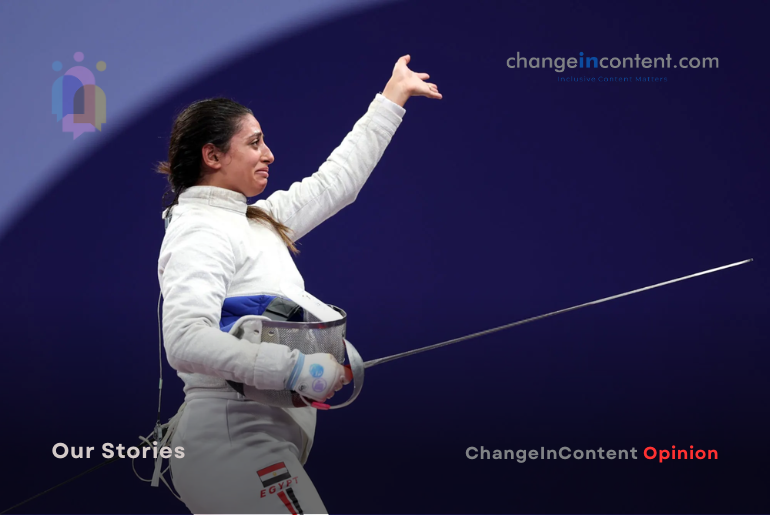Deciding whether to continue competing while starting a family is a tough choice that female athletes often face, but male athletes usually don’t. Such is the story of pregnant Olympians. Serena Williams, who won four Olympic golds, expressed this frustration in a Vogue essay. She said, “Believe me, I never wanted to have to choose between tennis and a family. I don’t think it’s fair. If I were a guy, I wouldn’t be writing this because I’d be out there playing and winning while my wife was doing the physical labour of expanding our family. Maybe I’d be more of a Tom Brady if I had that opportunity.”
 In 2013, Olympic athlete Alysia Montaño competed in the 800m for the United States. She ended her sponsorship deal when the company stated it would stop payments if she became pregnant. Montaño found it deeply unfair that she faced financial penalties for pregnancy, especially since male athletes don’t face similar consequences when they become fathers.
In 2013, Olympic athlete Alysia Montaño competed in the 800m for the United States. She ended her sponsorship deal when the company stated it would stop payments if she became pregnant. Montaño found it deeply unfair that she faced financial penalties for pregnancy, especially since male athletes don’t face similar consequences when they become fathers.
Supporting female athletes through pregnancy is long overdue
Managing pregnancy with a career in sports is no easy feat for female athletes. Even though women’s sports are receiving more attention and professionalism, maternity rights and support still lag far behind. After pushing their bodies to the limit to succeed in their sports, they often earn sponsorship deals that help fund their training and living expenses. However, female athletes face discrimination when they want to have children, as sponsors usually stop payments while they take time off to give birth and recover. In short, most of their contracts don’t include paid maternity leave.
Phoebe Wright, a Nike-sponsored runner from 2010 to 2016, put it bluntly: “Getting pregnant is the kiss of death for a female athlete.” It might sound like an exaggeration, but reality often proves her point.
Olympic marathoner Kara Goucher discovered during her 2010 pregnancy that Nike planned to stop paying her until she started racing again. So, she aimed to run a half-marathon just three months after giving birth, all to restart her paycheck.
When track and field Olympic athlete Allyson Felix became pregnant, Nike offered her 70% less on her contract due to the pregnancy. Even with nine Olympic medals and an impressive career, the company drastically reduced Felix’s pay simply because she was pregnant. At 33, Felix felt pressured to bounce back quickly after childbirth, even though she had to undergo an emergency C-section at 32 weeks due to severe pre-eclampsia. When she requested a contractual guarantee that her performance post-baby wouldn’t lead to further pay cuts, Nike’s response was a firm “no.”
How pregnant Olympians are shaping the future of sports
After competing in the Paris Olympics, Egyptian fencer Nada Hafez shared on Instagram that she was actually seven months pregnant. Hafez, at her third Olympics, defeated American world number 10 Elizabeth Tartakovsky 15-13 before losing 15-7 to Jeon Hayoung of South Korea in the round of 16. “What looked like two athletes on the podium was actually three!” Hafez wrote on Instagram, sharing an emotional photo of her during the match. “It was me, my competitor, and my little baby yet to meet the world!“
Just a day later, Azerbaijani archer Yaylagul Ramazanova also revealed she had competed while six and a half months pregnant. Ramazanova told Xinhua News that she felt her baby kick right before taking a shot and then scored a perfect 10.
They aren’t alone. Many expectant mothers have competed in sports or returned to the field shortly after giving birth. British cyclist Elinor Barker won a silver medal at the 2020 Tokyo Olympics just days after learning she was pregnant. US beach volleyball player Kerri Walsh Jennings won gold at the 2012 London Olympics when she was five weeks pregnant. British sports shooter Amber Rutter secured a silver medal at the 2024 Paris Olympics just three months after giving birth.
These women push the boundaries of what society believes pregnant women can or cannot do. This change is much needed today because pregnancy discrimination still exists, doubting a pregnant woman’s abilities, denying her necessary support, or even causing career setbacks.
Pregnant Olympians: The final thoughts
More pregnant athletes are now challenging old norms and changing the conversation about balancing sports careers with family life. They’re making it clear that they should have rights and protections if they choose to become pregnant while competing. This new perspective is helping all athletes feel more empowered to seek fair treatment and support, no matter their family plans.
Disclaimer: The views expressed in this article are based on the writer’s insights, supported by data and resources available both online and offline, as applicable. Changeincontent.com is committed to promoting inclusivity across all forms of content, which we define broadly to include media, policies, law, and history—encompassing all elements that influence the lives of women and gender-queer individuals. Our goal is to promote understanding and advocate for comprehensive inclusivity.


